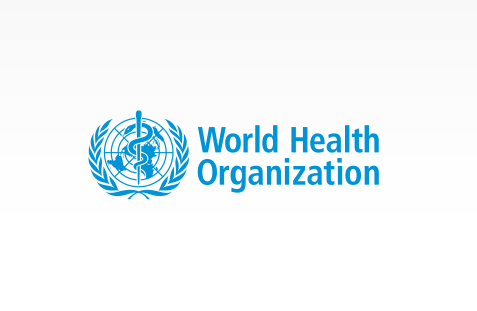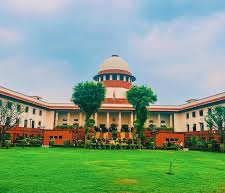
In the last several months an unusual crescendo of warnings and complaints against the WHO is being heard from many health professionals, investigative journalists, and public administrators in several countries. Certain governments are also finally raising questions and concerns about the ongoing process to give the UN health body much-increased powers over national governments and their citizens concerning health alerts and prescriptions, mandatory measures, and restrictions on travel on the grounds of sanitary precaution. On 15 June of this year, a massive protest will take place before the UN’s Palais des Nations in Geneva under the logo ‘Stop the WHO”.
Suspicions and scepticism about the WHO under its current Director-General, Tedros Adhanom Ghebreyesus, a former leader of a left-wing revolutionary armed organization in his native Ethiopia, have been rife since the days of the COVID pandemic when many WHO statements and policy recommendations to the 194 member-states were found to be contradictory, controversial, and unnecessarily alarmistic. Attention was also drawn to the Organisation’s connections with, and dependence upon certain governments and private foundations and corporations that fund it. The Then-President Donald Trump threatened to take the United States out the WHO because of the deep dissatisfaction his government felt about that organisation’s arbitrary response to the epidemic and its alleged subordination to the Chinese State and to its major donors, particularly the Bill and Melinda Gates Foundation, that all have political and financial agendas.
To understand the negative public reaction in many quarters to the reform process currently underway in the WHO, we must first know what is being planned and what is at stake.
The first bone of contention is the proposed revision of the statutory rules which, if they are adopted in its current text will give full power to the WHO DG to:
-decide what is a pandemic or when there is a pandemic risk.
-decide alone if and when to impose to all WHO member-states measures to be taken to fight the pandemic, or respond to the risk, by issuing ‘early action alerts’ legally justified on the ground of Public Health Emergency International Concern (PHEIC).
It is important to note that such proposed powers are not specifically limited or conditioned. They make the Director General a world health tzar in the broader sanitary sphere which, according to these very texts, extends to the environment, the climate, agriculture, demography and other related domains. Some suspect that the WHO could, in keeping with a wider agenda, recommend or require travel limitations, population control, climate confinements, and agricultural/nutritional policies intended to reduce emissions and reverse global warming. Such measures may appear justifiable or even necessary at first glance but entrusting those decisions to a co-opted group of experts is highly questionable, given the uncertainty that remains on many aspects of the relatively new ‘climate science’ and the alleged Global Warming process.
After all, China has for decades imposed on its citizens several rules and controls that most people in other countries would not accept because of their totalitarian character. Yet the PRC exercises a great deal of influence on the world and especially on UN agencies and globalist gatherings such as the Davos Forum. It would therefore not be surprising if similar restrictions are contemplated by them, given perceived existential threats.
The proposed revision empowers the WHO to verify that member-states don’t take measures that it regards as contrary to their people’s interest. We witness again here a plan to invest a supranational unelected bureaucratic authority with the power to supervise and supersede the authority of national governments in their internal affairs, in the name of a ‘Responsibility to Protect’, the principle that was invoked by certain NATO-member nations and others to invade other countries and overthrow their governments or change their borders. Coincidentally, the mention of ‘individual right and freedom’ has been dropped in the text of the new regulation being proposed.
There is no definition given to the ‘pandemic’ concept since its very meaning was modified at the outset of the COVID-19 alarm to enable the WHO and the governments of member states to apply emergency measures to a health situation that factually did not warrant them. Declassified official documents from various countries show that, under pressure from the Gates Foundation in particular, State officials modified medical assessments of the health risks to declare a state of maximal alert and impose exceptional measures such as lockdowns, bans on travel, closure of businesses, indefinite cancellations of public activities and events, frequent PCR tests for all and mandatory vaccinations.
The WHO could, under the proposed amendments, demand that health passes for international travel be made mandatory. They are expected to include digital (QR coded and time-bound) vaccination certificates, to be periodically updated with boosters, like the anti-covid vaccines that were scheduled to be taken every three months. Such vaccines might be, like the anti-COV-SARS-19 mRNA genic experimental therapies, ‘approved for emergency use’ without going through the proper and lengthy testing processes legally required for vaccine commercialisation.
The second chapter of the WHO review process is the famous pandemic treaty, whose provisional text was posted last March 13th on the WHO website and is to be approved and implemented from May 24th, 2024. The original draft has been modified, with several amendments being introduced in breach of the regulations requiring a four-month advance notice for discussion among member states. Instead, those amendments were not submitted to a vote and yet were adopted in May 2022 by a review committee of experts appointed by the WHO DG.
One bitter irony is that the sanitary travel regulations being considered are not even attempted for the vast crowds of ‘illegal aliens’ that cross borders every day, especially into the United States and the European Union. However, they could be used to limit ‘legal’ foreign travel, especially for people from ‘poorer’ countries who already have to deal with tough rules and extensive paperwork to qualify for visas in OECD States and other migrant destinations. As for vaccine mandates, they were imposed during the COVID crisis in many countries to incite or compel people to get injected, mainly with Pfizer and Moderna products. The manufacturers and sellers knew these mRNA shots carried numerous health risks whereas their benefits were unknown, as leaked and released internal documents show, but they were still misleadingly promoted as ‘safe and effective’. The governments that bought them were made to sign ‘secret’ purchase contracts that exempted the pharma companies from any legal liabilities.
For the drug companies it was an unparalleled bonanza as they were paid with public funds for astronomical quantities of vaccines (the EU contracted with Pfizer for four billion doses, almost ten times the size of its population). The full terms of the agreement between Pfizer and the EU have not been disclosed so far, despite public demand.
Whether or not kickbacks were paid to the high officials who negotiated those deals, the fact remains that they were highly irregular transactions. Making vaccinations compulsory in practice amounted to a violation of individual rights which flew in the face of the oft-proclaimed ‘ownership of one’s body’ that the powers-that-be are quick to guarantee regarding abortion rights, euthanasia, and other controversial issues.
Granting similar powers permanently to the WHO, given its extensive ties with ‘philanthro-capitalist’ foundations, closely linked with Big Pharma, is dangerous for public freedom, the economic sovereignty of weaker countries, and deleterious for traditional health systems such as Ayurveda that leading pharmaceutical firms, allied with many medical associations, wish to restrict, control and even outlaw on the ground that it is a ‘pseudo-science’. Indeed, effective, non-harmful medicines like Ivermectine and Hydroxychloroquine were banned by Health Ministries in several countries during the COVID epidemic on the recommendations of Big Pharma, thereby leaving no alternatives to the new vaccines.
There is a powerful trend in medical policy-making away from the individual physician-patient relation and towards high-tech, eugenistic, AI-guided, computerised health management, based on a ‘Harvard Business Model’ according to which mRNA gene-therapies and surgical organ replacements are the norm.
Those who won’t accept to submit to mass-mandated ‘preventive’ treatments (lockdowns, compulsory genetic tests, vaccine mandates) may be regarded as subversive dissidents, as they were during the COVID crisis. On behalf of all nations that have rich indigenous therapeutic traditions and wish to retain their sovereign autonomy India should lead the effort to severely curtail and monitor the WHO’s ambitions and the attempts driven by the Gates and other foundations to manage mankind’s health according to their technocratic, profit-driven interests, in the service of the new privatised US global empire.
Note: Assertions in this article are backed by factual statements and findings in newspaper articles, peer-reviewed studies and scientific investigations. For more information readers are referred to James Roguski’s detailed reporting in rejecttheamendments.com and stopthetreaty.org (also James Roguski’ substack) among other sources.






This analysis is an accurate reflection of how modern medicine is being provided – it is now an industry. Modern medicine is itself, strictly speaking, a pseudo science. For past 50 years we have been trying to homogenize diagnosis and treatment across geographies – our way of being Universal. Alas, recent gene studies are forcing us to start tailoring medicines to individuals – the old Pagan polytheistic way! Thank you Come Carpentier for this timely article.